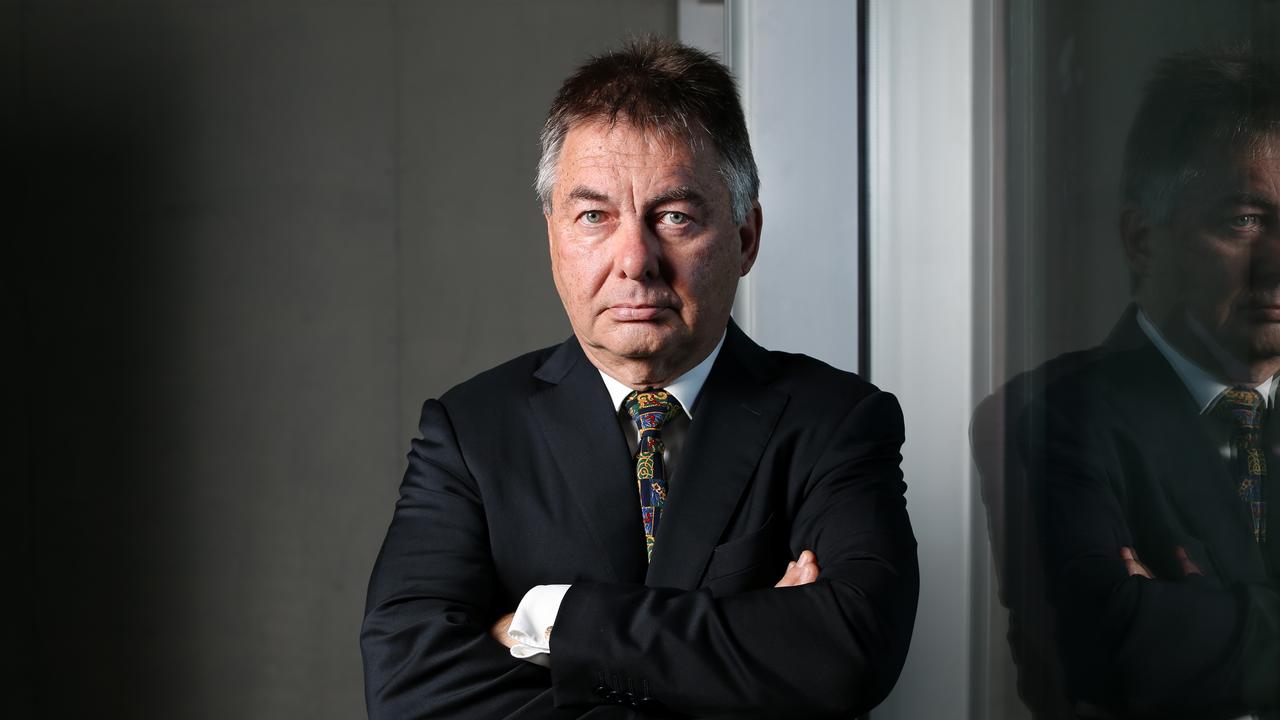Police pressure, toxic culture: Bombshell claims made at DNA inquiry
Pressure from the Queensland Police Service had created a “toxic” culture at the state-run forensic laboratory ahead of a fateful change which led to evidence in murder cases being ignored, an inquiry has heard.
There was a “toxic” culture at the state-run forensic laboratory and mounting pressure from the Queensland Police Service at the time the lab made changes to testing DNA samples which led to evidence in murder and rape cases being ignored, an inquiry has heard.
A senior scientist at the Queensland Health’s Forensic and Scientific Services, who provided expert analysis to a report that predated the 2018 decision to introduce the higher threshold, told a commission of inquiry on Monday that the lab ignored recommendations from its own scientists when it decided to introduce an arbitrary line in the sand for forensically testing DNA samples.
Kylie Rika contributed to the 2015 report that found about 18 per cent of samples in the range of 0.00214 and 0.008ng/uL of DNA returned “informative” information to be passed on to police investigating a crime, the inquiry heard on Monday. Despite this, it was decided in 2018 to apply a higher threshold for testing, meaning further testing of samples with less than 0.008ng/uL should stop and not be routinely conducted.
A commission of inquiry into the state-run DNA process is examining how the arbitrary threshold was enacted after bombshell interim findings last week.

As part of the inquiry into the testing system, retired Court of Appeal president Walter Sofronoff KC revealed the state-run lab misled courts by wrongly reporting that no DNA had been detected or that DNA was insufficient for processing.
The hearing heard how samples with low levels of DNA before January 2018 were concentrated by scientists to improve the likelihood of obtaining a useful profile from the DNA sample.
But this process was later stopped following further reporting from FSS which said there was “minimal value” in continuing to test samples in the lower threshold.
Following the 2018 report which said the new threshold should be applied, Ms Rika and another scientist Amanda Reeves, said there were “substantial concerns” with the proposed procedure change.
Ms Rika told the hearing the state-run lab’s team manager Justin Howes and managing scientist Cathie Allen had said the Queensland Police Service had been pressuring the analysis team to improve turnaround times of results.
“That information came to me and others in the lab, through Justin and Cathie, based on conversations with QPS,” she said.
“I just remember ... QPS were putting pressure on how to get results out more quickly.”
A later report leading up to the decision being made to change the procedure, which was looking into the validity of testing on the lower threshold, found testing DNA samples below 0.008ng/uL had a 10.6 per cent success rate.
But Ms Rika told the hearing that even a slight chance of extracting a result was worthy of examination.
“In my opinion, I think even one sample … that retains DNA profile is enough,” she said.
Ms Rika said the concerns raised by her and other scientists were ignored, and revealed the culture in the state-run lab was “toxic”.
“In around 2018, my perception of the management team’s responsiveness to feedback was that if the feedback was in line with the agenda, then it was received quite positively,” she said.
“But if it wasn’t, then it seemed that the feedback was a nuisance.
“That is because, in my view, the culture at the lab at that time was quite toxic.”
She said the toxic culture in the team led to her feedback being dismissed, along with general consultation and scrutiny on scientific decisions right up until the announcement a commission of inquiry would be launched in the middle of this year.
The hearing heard of how another forensic scientist at Queensland Health, Emma Caunt, emailed Mr Howes following the announcement the new procedure would be introduced in defiance of the views shared by the lab’s experts.
The email, shown at the inquiry hearing, outlined her concern that the decision would suggest to scientists that “nothing further can be done with this sample, which is not the case for 10 per cent of the samples”.
Ms Rika also emailed Mr Howes in early February following the implementation of the new procedure, saying “this is a concern” and detailed why she thought the plan was inaccurate.
She received no reply, and emailed Mr Howes again on February 23, with a short note: “Just following up on your thoughts re below”.
Ms Rika told the hearing she couldn’t recall if she ever received a reply, but the concerns were nevertheless ignored.
Ms Rika said her concerns about the threshold change were ignored by her superiors who told her “we’ve got too much on’’ to conduct more testing.
She also said there was a concern when media began reporting on the issue, with the managers of the lab wanting to keep a status quo while it was being examined.
“But I didn’t want to wait, it was urgent to me,” Ms Rika told the inquiry.





